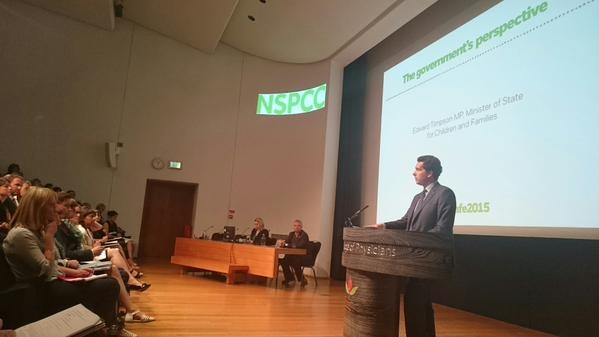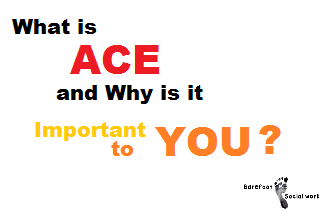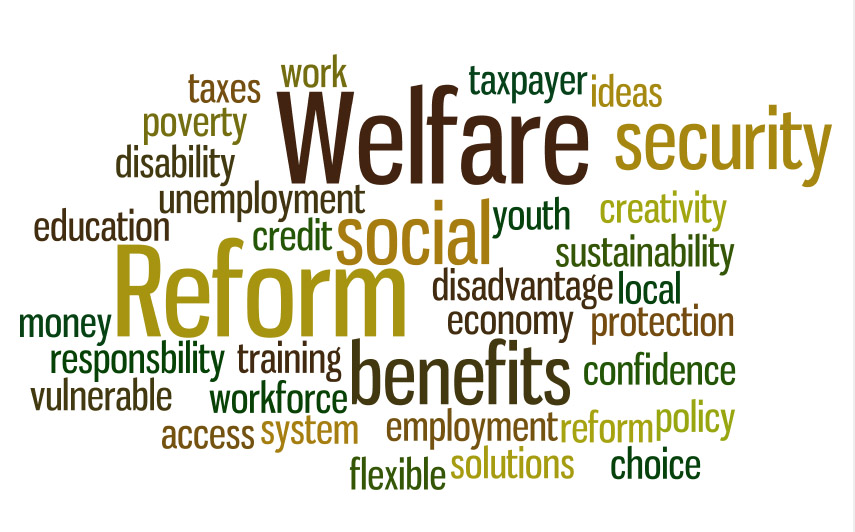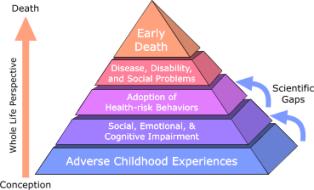|
The All Party Parliamentary Group on Runaway and Missing Children and Adults is inviting interested individuals and groups to submit written evidence to its current inquiry into how the police, children's services, schools and other professionals safeguard children who are categorised as 'absent' from home or care or education. The inquiry is intended to examine how the introduction of the ‘missing’ and ‘absent’ categories has affected the safeguarding response to children who run away.
Ann Coffey MP raised concerns about the new absent category in her report published in October 2014 ‘Real Voices – Child Sexual Exploitation Greater Manchester’. The deadline for submissions of written evidence is Friday, 22 January 2016. You can find out more information here. Further reading: Statutory guidance on children who run away or go missing from home or care. Report from the Joint Inquiry into children who go missing from care (June 2012).
0 Comments
Today Edward Timpson, Children and Families Minister, addressed the NSPCC conference about how social work reform and innovation can help better protect vulnerable children. He became a Member of Parliament in 2008 after winning a by-election in the constituency of Crewe and Nantwich. In September 2012, he was appointed as a Parliamentary Under-Secretary of State at the Department for Education, and following the 2015 general election, he was promoted to Minister of State for Children and Families.
You can see the whole speech here, but I've summarised/quoted the main points below. He started his speech with a little self-deprecation, saying how thrilled and surprised he was to be back in office, before drawing attention to his own upbringing, in a household with adopted and fostered siblings, and his work with children in care. He says he believes “the protection of vulnerable children… [is] the most profound responsibility we have as a society". He said that during the last parliament he had worked to “strengthen the child protection system… with major reforms to social worker recruitment and assessment”. Also “the first independent children’s trust in Doncaster”, he claimed, are “freeing up local authorities so that they can set up new models of delivery”. Child sexual abuse and NSPCC report Referring to investigations in Rotherham, Rochdale and Oxford he said: “we’ve been able to shine a light on a police and social care system set up to protect children, but that all too often turned them away, leaving them in the hands of callous abusers”. He also said that “the Prime Minister has appointed Karen Bradley as a minister in the Home Office to tackle [CSE] alongside [him] - recognition that child sexual abuse is about child protection... but also about prosecution too”. Centre of Expertise Timpson reported that a “new Centre of Expertise” will try “to understand what works when it comes to tackling and preventing child sexual abuse”. In addition, he acknowledged “that while CSE is dominating the media, we must not lose sight of neglect”. That’s why, he said, they’re “looking at having a campaign to encourage the public to report all forms of child abuse and neglect”. Social work reform “At the heart of good child protection is, of course, good social workers”. He said that “the introduction of a new assessment and accreditation system for children’s social workers” will offer “a rigorous means of assuring the public that social workers…have the knowledge and skills needed to do the job”. His department will also continue to support “projects to bring the brightest and best into social work through Step Up to Social Work and Frontline”. Innovation programme Timpson said that he was “especially keen to see much closer working between the voluntary sector and local authorities - something the Children’s Social Care Innovation programme is encouraging and seeing take root.” There’s a “£1.2 million initiative with SCIE - The Social Care Institute for Excellence - that aims to help us learn better from serious case reviews (SCRs) and improve their quality, and which includes a pilot to improve how SCRs are commissioned”. There’s also a “£1 million funding for the NSPCC to introduce the New Orleans intervention model in south London - which aims to improve services for children under 5 who are in foster care because of maltreatment by promoting joint commissioning across children’s social work and CAMHS teams.” Character and resilience Timpson’s “brief has been extended to include character and resilience”, placing “a greater emphasis on helping children… develop the qualities and life skills that will give them a strong foundation for social life”. He told the audience of social care professionals that “there’s a need to get better and smarter about how we equip our sons and daughters with the attributes they need to find their feet today and truly flourish.” He concluded his speech by asserting that he is a “pragmatist and simply [wants] to do what’s best by and for children, wherever they are and whatever their circumstances.”
Whitney was right in 1985 when she sang “the children are our future” but does the government believe this only applies if you’re from a certain background? I recently read an article by Dr. Charles Lewis where he asks if the US is witnessing a new wave of social Darwinism. Perhaps the UK should also reflect upon this question. What kind of future will the most vulnerable children in our society have unless we invest in them and their families both financially and emotionally?
The shock result in the UK general election was a wakeup call and we need to re-examine how social issues are discussed within the media if they are to be seen as relevant to the electorate. Labour are reportedly “soul searching” whilst the Liberal Democrats have launched a “fightback” but we should all be engaged in the debate. Many people believe that the core tenet of democratic voting is that we should vote for those that best represent our personal interests; however, we should all have a vested interest in the welfare of those living in poverty and with adversity, and we know that the socially excluded are less likely to vote and have their interests represented.
In my post on the 11 May 2015 I described how poverty is considered to be the best predictor of mental health disorders because it is a predictor of all the other things that are causal. I explained how adverse childhood experiences (ACE), many of which are compounded by poverty, are strongly related to adverse behavioural, health and social outcomes; creating a cyclic effect where those with higher ACE counts have higher risks of exposing their own children to ACEs.
These childhood experiences place a huge burden on the NHS, social care and judicial system. Surely it is plain to see that investing in services earlier will not only improve the life chances of the most vulnerable children in our society, but it will also alleviate some of the pressure on other services. The government needs to invest in an infrastructure that can be preventative as well as reactive. We would all benefit from it. If we are concerned about crime, we might want to look at the causes of crime. Childhood adversity is associated with adult criminality and it has been recommended in a 2013 study that to decrease criminal recidivism, treatment interventions must focus on the effects of early life experiences. Indeed, a UK ACE study found that preventing ACEs in future generations could reduce levels of violence victimisation by 51%, violence perpetration by 52% and incarceration by 53%. If we are concerned about the NHS, we might want to look at the causes of the negative health outcomes that place a burden on its service. Previous studies have found that there is a dose-response relationship between adverse childhood experiences and health outcomes. For a person with an ACE score of four or more, the relative risk of chronic obstructive pulmonary disease was around two and a half times that of someone with an ACE score of zero. For hepatitis, it was also two and a half time times. A person with an ACE score of seven or more had triple the lifetime risk of lung cancer and three and a half times the risk of ischemic heart disease. In 2014 a Bulletin of the World Health Organization described how people in the UK with at least four adverse childhood experiences were at significantly increased risk of many health-harming behaviours. They said modelling indicated that prevention of adverse childhood experiences would substantially reduce the occurrence of many health-harming behaviours. But that's not all... they also found that preventing ACEs in future generations could reduce levels of early sex (under 16 years) by 33%, unintended teen pregnancy by 38%, smoking by 16%, cannabis use by 33%, heroin/crack use by 59% and poor diet by 14%. Until we see political and social reform Social Workers can help the vulnerable groups they support by working in preventative ways, rather than concentrating solely on crisis intervention; act as advocates for people that encounter injustices; empower people to become involved in decisions that affect them; challenge oppressive working practices; and most importantly, advocate for political and social change. It is important for social workers to engage in the current debate about how to prevent harmful childhood adversity and challenge structural inequalities that compound them. If you would like to learn more, I've added some recommended books at the end of this post. You should also take a look at this video of Mark Bellis at the World Health Organisation: I read in the Guardian today that Downing Street have announced Iain Duncan Smith will remain Work and Pensions Minister following the Conservatives electoral win last week. They reported that he will “continue with his task of “making work pay and reforming welfare” as the government implements the universal credit reforms and imposes £12bn in cuts on the welfare budget”. This will be in addition to the £30bn that the Institute of Fiscal Studies say the Tories will also need to find in real-terms cuts from ‘unprotected’ departments, including social care and defence. The news of a Tory win last Thursday didn’t go down well with some. There were large demonstrations in London over the weekend; although it was only the violent clashes with riot police outside Downing Street that seem to have made the headlines. However, the arrests don’t seem to have deterred them; and the anti-austerity group behind the protest are planning another demonstration outside the Bank of England next month. Like many, I am genuinely worried about the proposed cuts and what that means for social work. I posted last week that Peter Kinderman, Professor of Clinical Psychology & Head of the Institute of Psychology, Health & Society at the University of Liverpool, has said that one of the best predictors of mental health disorders by far, whether it’s depression, suicidality, psychosis, are all life events. The strongest predictor all by itself is poverty. Not because poverty by itself causes depression, but because it is a predictor of all the other things that are causal. So poverty has been described as the causes of the causes. And those other causes are a whole raft of things – childhood neglect, childhood abuse, loneliness, and problematic parenting, which is usually inter-generational. It’s not about bad parents, it’s about who themselves haven’t perhaps had the sort of childhood that predisposed them to good enough parenting. And so the cycle continues… There are currently 3.5 million children living in poverty in the UK. That’s almost a third of all children. 1.6 million of these children live in severe poverty. But what the Conservatives don’t want you to know is that 63% of children living in poverty are in a family where someone works. This is why welfare, preventative services, family support and intervention are so vital. We need to break the cycle by providing welfare that brings children out of poverty. Services need to be funded and available to support the most vulnerable and improve parenting so that children can be safeguarded in the care of their family. However, services that were once available have been decimated through cuts over the course of the last parliament and they look set to get worse by 2020. But welfare isn’t just about being a decent human being; it also makes economic sense. In the mid-'90s, the Centers for Disease Control and Prevention discovered an exposure that dramatically increased the risk for seven out of ten of the leading causes of death in the United States. In high doses, it affects brain development, the immune system, hormonal systems, and even our DNA. People that are exposed in very high doses have triple the lifetime risk of heart disease and lung cancer and a 20-year difference in life expectancy. It’s not about eating GM foods. It's childhood trauma: things like abuse or neglect, or growing up with a parent who struggles with mental illness or substance dependence; things that we know, according to Peter Kinderman, are strongly linked to poverty. Take a look at this 2014 TED talk by Nadine Burke Harris. The Adverse Childhood Experiences study found that there was a dose-response relationship between ACEs and health outcomes: the higher your ACE score, the worse your health outcomes. For a person with an ACE score of four or more, their relative risk of chronic obstructive pulmonary disease was two and a half times that of someone with an ACE score of zero. For hepatitis, it was also two and a half times. For depression, it was four and a half times. For suicidality, it was 12 times. A person with an ACE score of seven or more had triple the lifetime risk of lung cancer and three and a half times the risk of ischemic heart disease, the number one killer in the United States of America. Now, you might be thinking – this is interesting but it’s about a study conducted in the United States. Can we rely on the findings to support welfare as a public health initiative in the UK? Well…. In 2014 Mark Bellis and colleagues published a retrospective study to determine the impact of adverse childhood experiences on adult health behaviours and health outcomes in a UK population. They also found that increasing ACEs were strongly related to adverse behavioural, health and social outcomes. Compared to those with 0 ACEs those with 4+ ACEs had a greater risk of poor educational and employment outcomes; low mental wellbeing and life satisfaction; recent violence involvement; incarceration; recent inpatient hospital care and chronic health conditions; and early unplanned pregnancy. All of this suggests a cyclic effect where those with higher ACE counts have higher risks of exposing their own children to ACEs. There are more studies here, here, and here. It’s clear that these childhood experiences place a burden on a UK population’s health, NHS and judicial system; and there is a strong case for the government to invest in effective interventions to prevent them. That’s why the World Health Organization and global health partners are promoting research into the extent and impact of them around the world. So, why is it that during this time of growing evidential support for preventative work, is the government promoting a false economy through welfare cuts and dismantling the welfare system??? In 2007 Lynne Wrennall identified failures in the UK’s work with vulnerable children. She believes that the morale of a “great many caring, compassionate, highly competent, and creative social workers” would be “vastly improved if their primary function was again focused on assisting, rather than dismantling, families, upon working creatively toward this end with the resources and the legislative and managerial support to do so”. However, she also acknowledges that sometimes “an out-of-home placement is unavoidable”, and that in those instances “a programme leading towards re-unification and rehabilitation must be implemented”. She advocates for a “European model” that “strongly favours an educative role for social workers and a primary task of maintaining family unity, utilising and coordinating services toward this end and focusing on `educating’ the parents and family in social norms and values”. But for this to happen the conservative government would first need to reframe the way it thinks about the most vulnerable people in our society and invest in their future wellbeing and health. Local Authorities would need greater funding to hire more social workers so that caseloads are at a manageable level where they have the time to undertake intensive direct work with families again. They would need to fund preventative and outreach services that can directly tackle problems before children become at risk of significant harm. Instead, proposals have been tabled to jail social workers who fail to prevent neglect, despite the necessary infrastructure to properly address it; and the shock result of a Conservative majority victory signals deeper, faster cuts than ever before. Communitycare has urged Social Workers to channel whatever they are feeling about the election result into something that isn’t apathy, because the profession looks set to be needed like never before and I have to agree. P.S. Please follow me on facebook and/or twitter to see posts as they're added to my site
Political Rhetoric: Is Social Work on the political agenda in the run up to the general election?17/4/2015 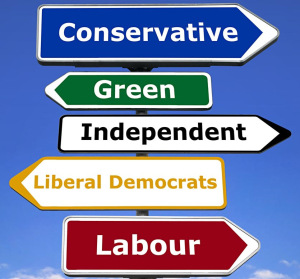 Community Care reported on Wednesday that UKIP would seek wholesale reform of Britain's "clearly failing" child protection services, if elected. If I may overlook the fact that this is from UKIP for a second; if this policy was coming from any of the political parties I would be very interested in hearing more. Highly skilled and able practitioners are working in a very challenging environment with many systematic failures. If any party was to take an open and unbiased review of child protection services I would be very pleased because they would see what many of us have known for years. However, I am rather sceptical about any of their motives. In my experience politicians are too quick to scapegoat practitioners rather than look at the impossible system within which they are expected to practice safely and invest the necessary capital; because that is what is needed - INVESTMENT. When politicians refer to Child Protection Services what they are actually talking about is Children's Social Care. The problem with this choice of rhetoric is that it leads the majority of voters to believe it is not a service that they will ever need and therefore, whilst they may be interested and concerned, they would not prioritise spending in this area. This is a false dichotomy. Children's Social Care encompassed a whole host of services for a diverse demographic of children and young people. We are not just talking about front-line Social Workers but also the preventative services that are bearing the brunt of cuts; support and care for looked after children; services and respite for families of children with additional needs. Social Workers do not only work with 'troubled families' but also families experiencing crisis whatever their background. Leading the often complicated array of professionals and services are Social Workers. It is when Social Workers are overstretched and unable to do the job they love that the system falls apart and children are put at risk. Serious Case Reviews often cite poor multi-agency working - Social Workers, when sufficiently resourced, are the glue that holds it all together and should be valued for the job they do. I have worked with an incredibly mixed demographic of clients in my time. Some would have fitted the governments definition of a 'troubled family' others would not. My role has involved safeguarding children from physical, sexual, and emotional harm. It has also included working with parents who need support and assistance as a result of redundancy, homelessness, illness and disability. One family in particular springs to mind as I write this; they were a young professional family who had fallen on hard times as a result of redundancy. Dad had lost his job and, as result of the economic downturn, was finding it difficult to bridge the gap. He was extremely conscientious, hard working and proud. He found it very difficult asking for help but when he was unable to pay the rent and they lost their home, without any extended family to offer assistance, he turned to Children's Services to help him, his wife and their two young daughters. It was only a month until he found employment again but I am sure he would say that we offered him a much needed lifeline. This was not his fault and I am sure a year or two earlier he would not have envisaged a time when he and his family would have ever needed the help of a Social Worker. This is my point: you never know when you will fall on hard times; this is why Social Care should be on the political agenda; and why voters should be interested in what party manifestos have to say about it. So, lets take a look at what the main parties have to say in their manifesto's. Labour would avoid "extreme" social care cuts and continue to fund the Frontline fast track training scheme for Children's Social Work according to their manifesto. They would also:
The Conservatives would create regional adoption agencies that work across local authority boundaries, the party manifesto has pledged. "Far-reaching powers" over social care would also be devolved to large cities that opt to having an elected mayor, like Greater Manchester. Their party manifesto also said they would:
The Liberal Democrats have pledged to "radically transform mental health services" if they are elected to government. Their manifesto states that a Liberal Democrat government would build on the work of the coalition to establish parity between physical and mental health services. They also say they would:
The Greens have pledged free social care and health care for all older people at a cost of "around £8bn a year" and an end to "failed" austerity. Their manifesto also promises:
As mentioned earlier, UKIP would seek wholesale reform of the "clearly failing" child protection services in Britain, if it were to win the next general election. They would hold an open review of all childcare and child protection services, with a view to reforming the system. The cited concerns over "misplaced sensitivity to issues of race and religion", "forced adoptions" and professionals "letting serious cases of abuse and maltreatment slip through the net". In their manifesto UKIP said that they would:
The Greens win for me but as we don't have a visible candidate in my area this is a mute point. What party impresses you the most? Why? I hope that the next government values Children's Social Care enough to invest in it. I hope that they realise it is not only a bad workman that blames his tools. It is impossible for Social Workers to produce good outcomes 100% of the time when they have sky high caseloads and dwindling preventative services. 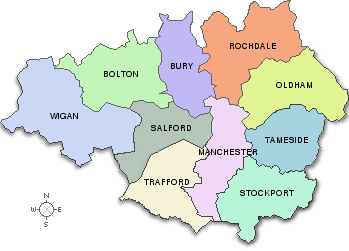 This week it was announced that an agreement for devolution within the Greater Manchester Combined Authority has been reached with central government. The agreement, reached with the Chancellor who has called for a 'Northern Powerhouse' to maximise the economic potential of the north - and building on the work of the Greater Manchester Combined Authority (GMCA) established in 2011 - will give greater powers to the combined authority working in partnership with a directly-elected Mayor. The agreement, which will need to be ratified by all ten Greater Manchester Councils in due course, signals a step change in the willingness of government to devolve power within England. Greater Manchester has long been recognised as being at the forefront of the debate with government on devolution in England. This is the first such deal struck with a city region and this is a recognition of the fact that Greater Manchester has established better and stronger collaborative arrangements than any other city region within the UK. It is hoped that these will open up new opportunities for increasing economic growth and improving the quality of life of Greater Manchester residents by replacing an over-centralised national model, imposing ‘one size fits all’ solutions – with greater local control over certain budgets and powers. For example, they make promises to unlock huge public transport improvements and help tens of thousands of Greater Manchester residents into work. Under the settlement, a directly-elected Mayor for Greater Manchester will be created. The first Greater Manchester Mayoral elections are expected to take place in 2017. Some powers will only be devolved to Greater Manchester once the Mayor is in place but a significant number of initiatives will be taken, starting in the New Year, in advance of the election of the Mayor. These will include the establishment of a new funding deal which will enable Greater Manchester to invest in further extension and strengthening of the city regions transport infrastructure. The deal is worth £900 million over the next 30 years. Powers to be devolved to Greater Manchester include:
The existing Police and Crime Commissioner’s role will also be merged with the Greater Manchester Mayor’s role. Indeed the Mayor of Greater Manchester is likely to get even more powers than the London Mayor with control over it's health and social care budget. However, not everyone is convinced about the announcement. Geraint Johnes (Professor of Economics in the Department of Economics, Lancaster University) has said that in his opinion these powers are modest and do not offer the promise of any real capability to stimulate economic development. But what does all this mean for Social Work? Firstly, GMCA and Greater Manchester Clinical Commissioning Groups will be invited to develop a business plan for the integration of health and social care across Greater Manchester, based on control of existing health and social care budgets. In the document published jointly by HM Treasury and GMCA specific mention is given to making use of of existing budgets and including specific targets for reducing pressure on A&E and avoidable hospital admissions. It says that the government will also work with local government and NHS England to give greater certainty about health and care funding settlements. This includes by working towards multi-year allocations at the next Spending Review. It assures us that the Treasury will support a Greater Manchester-wide health and social care strategy which fairly and accurately reflects the priorities of the full range of NHS and social care stakeholders, including acute trusts. What it does not say is specifically what services in the new world will look like. It say that agreement from Greater Manchester Clinical Commissioning Groups will be required to implement any plan for services and budgets which are their responsibility. Consequently, we will have to wait for a peek of the proposed business plan mentioned above to give us any idea of what this really means for social work. I am sure that it is little surprise to those working in the sector that greater emphasis has been placed on health services in the published literature thus far. What it does say, however, is that the Treasury has agreed to work with Greater Manchester on their early years pilot, with a focus on providing advice and support in ensuring effective pilot design and the creation of a robust evaluation framework. The treasury will work with Greater Manchester on engaging with schools to support early intervention and to make the case for this more widely across Greater Manchester. This is good news for the vulnerable children that may otherwise go unseen by professionals in the Early Years. I will of course keep you posted as further details are released. In the meantime, if you are interested in reading the agreement in it's entirety I have uploaded a copy to the Guidance section of the website. |
AuthorI'm a Qualified Children's Social Worker with a passion for safeguarding and family support in the UK. Archives
August 2016
Categories
All
|


